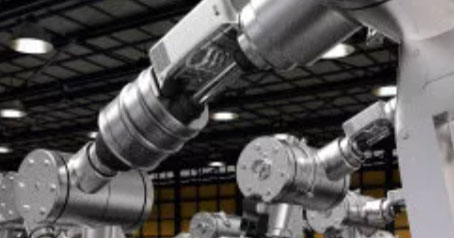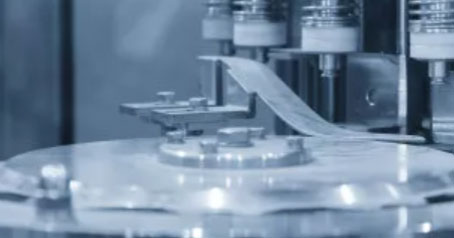Hydraulic charge pumps are essential components of hydraulic systems, ensuring the steady flow of hydraulic fluid and maintaining system pressure. However, like any mechanical component, charge pumps can face issues that affect their performance. In this blog, we'll discuss common maintenance practices and troubleshooting techniques to keep hydraulic charge pumps operating smoothly.
Regular Maintenance Practices
Proper hydraulic fluid levels and quality are vital for charge pump performance. Regularly check the fluid level and ensure that it's clean and free from contaminants. Contaminated fluid can lead to increased wear and reduced pump efficiency. Seals prevent fluid leakage and maintain system pressure. Inspect seals for signs of wear, cracks, or leaks. Replace damaged seals promptly to prevent fluid loss and pressure drops. Charge pumps generate heat during operation. Ensure that the system's cooling mechanisms, such as fans or heat exchangers, are functioning correctly to prevent overheating. Excessive heat can lead to pump inefficiency and premature failure. Install high-quality hydraulic filters to prevent contaminants from entering the pump and system. Regularly inspect and replace filters as needed to maintain clean fluid and optimal pump performance.
Troubleshooting Techniques
If the hydraulic system's pressure is consistently lower than required, it could indicate a worn-out pump. Check for leaks, damaged seals, or worn components. If these are ruled out, the pump might need replacement or servicing. Strange noises from the pump could point to cavitation, worn bearings, or loose components. Investigate the source of the noise and take corrective action, which might involve adjusting fluid levels, repairing worn parts, or addressing air leaks. Overheating can lead to pump inefficiency and system damage. Inspect the cooling mechanisms, ensure proper fluid levels, and consider using fluids with better heat-resistant properties. If the hydraulic fluid flow is erratic, it could be due to a malfunctioning pump. Check for blockages, damaged components, or irregularities in the fluid supply. Ensuring proper fluid viscosity and pump calibration can also help resolve this issue. Excessive vibration and noise can indicate misalignment, imbalanced components, or loose fittings. Address these issues promptly to prevent further damage to the pump and surrounding components.
Consulting the Experts
While basic maintenance and troubleshooting can address many issues, there are cases where professional expertise is necessary. If you encounter persistent problems or if the hydraulic charge pump's performance is severely compromised, consulting hydraulic system specialists or technicians is highly recommended. Their experience and diagnostic tools can help identify underlying issues and implement effective solutions.
In conclusion, maintaining hydraulic charge pumps is essential for the efficient operation of hydraulic systems. Regular maintenance practices, such as monitoring fluid quality and levels, inspecting seals, and ensuring proper cooling, can prevent issues before they escalate. Troubleshooting techniques, ranging from addressing low system pressure to diagnosing unusual noises, play a crucial role in identifying and resolving pump-related problems. By staying proactive and addressing issues promptly, operators can ensure the longevity and optimal performance of their hydraulic charge pumps and the systems they support.
 French
French
 Portuguese
Portuguese
 Russian
Russian
 German
German
 Spanish
Spanish
 Japanese
Japanese
 Korean
Korean
 Irish
Irish
 Greek
Greek
 Turkish
Turkish
 Italian
Italian
 Danish
Danish
 Romanian
Romanian
 Indonesian
Indonesian
 Czech
Czech
 Afrikaans
Afrikaans
 Swedish
Swedish
 Polish
Polish
 Basque
Basque
 Catalan
Catalan
 Esperanto
Esperanto
 Hindi
Hindi
 Lao
Lao
 Albanian
Albanian
 Amharic
Amharic
 Armenian
Armenian
 Azerbaijani
Azerbaijani
 Belarusian
Belarusian
 Bengali
Bengali
 Bosnian
Bosnian
 Bulgarian
Bulgarian
 Cebuano
Cebuano
 Chichewa
Chichewa
 Corsican
Corsican
 Croatian
Croatian
 Dutch
Dutch
 Estonian
Estonian
 Filipino
Filipino
 Finnish
Finnish
 Frisian
Frisian
 Galician
Galician
 Georgian
Georgian
 Gujarati
Gujarati
 Haitian
Haitian
 Hausa
Hausa
 Hawaiian
Hawaiian
 Hebrew
Hebrew
 Hmong
Hmong
 Hungarian
Hungarian
 Icelandic
Icelandic
 Igbo
Igbo
 Javanese
Javanese
 Kannada
Kannada
 Kazakh
Kazakh
 Khmer
Khmer
 Kurdish
Kurdish
 Kyrgyz
Kyrgyz
 Latin
Latin
 Latvian
Latvian
 Lithuanian
Lithuanian
 Luxembourg
Luxembourg
 Macedoniar
Macedoniar
 Malagasy
Malagasy
 Malay
Malay
 Malayalam
Malayalam
 Maltese
Maltese
 Maori
Maori
 Marathi
Marathi
 Mongolian
Mongolian
 Burmese
Burmese
 Nepali
Nepali
 Norwegian
Norwegian
 Pashto
Pashto
 Persian
Persian
 Punjabi
Punjabi
 Serbian
Serbian
 Sesotho
Sesotho
 Sinhala
Sinhala
 Slovak
Slovak
 Slovenian
Slovenian
 Somali
Somali
 Samoan
Samoan
 Scots Gaelic
Scots Gaelic
 Shona
Shona
 Sindhi
Sindhi
 Sundanese
Sundanese
 Swahili
Swahili
 Tajik
Tajik
 Tamil
Tamil
 Telugu
Telugu
 Thai
Thai
 Ukrainian
Ukrainian
 Urdu
Urdu
 Uzbek
Uzbek
 Vietnamese
Vietnamese
 Welsh
Welsh
 Xhosa
Xhosa
 Yiddish
Yiddish
 Yoruba
Yoruba
 Zulu
Zulu







